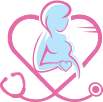Pregnancy is one of the most challenging times in a woman’s life. You’ll experience a variety of discomforts and problems during pregnancy, some of which will improve quickly, while others will take longer to improve.
Pregnancy brings about many physical changes. In addition to weight and body shape, there are other changes in body chemistry and function. The heart works harder, body temperature rises slightly, body secretions increase, joints and ligaments become more flexible, and hormones change.
Mood swings are common, caused by a combination of hormonal changes and increased fatigue, as well as normal anxiety about body image, sex, finances, marital roles, and impending parenthood.
Some common pregnancy problems occur in the early weeks. While others appear around the time of delivery, others may disappear quickly after they occur and then return after a while.

Morning sickness
Morning sickness, characterized by nausea and vomiting, is a common occurrence during the first trimester of pregnancy, affecting about half of all expectant mothers. While often most severe in the morning, some women experience these symptoms throughout their pregnancy.
Causes & triggers
- Hormonal Changes: Primarily driven by fluctuating hormone levels.
- Triggers: Stress, travel, and certain foods (spicy, fatty) can worsen symptoms.
Management Strategies
- Eat Small, Frequent Meals: Consume small meals every 1-2 hours to prevent an empty stomach.
- Avoid Greasy Foods: Opt for lighter, easier-to-digest options.
- Dry Crackers: Start the day with dry crackers before bed.
- Hydration: Drink carbonated beverages, peppermint/spearmint, and chamomile tea.
- Carbohydrate-rich foods: Include plenty of cereals, fruits, bread, and rice.
- Find Your Soothing Foods: Experiment with different foods and beverages to find what works best. Cold options are often easier to tolerate.
- Pre-Bed Snack: Have a high-protein snack before bed to stabilize blood sugar.
- Limit Coffee: Coffee can stimulate acid production, worsening nausea.
- Separate Liquids: Consume liquids 20-30 minutes after meals.
If vomiting is severe and leads to dehydration or weight loss, it may be a sign of hyperemesis gravidarum. Contact your healthcare provider or midwife immediately if you experience constant or severe nausea and vomiting.
Constipation
Constipation is a common concern during pregnancy. Hormonal changes and the growing baby can pressure your intestines, slowing digestion and making it harder to pass stools.
Manage constipation
- Increase Fiber: Include plenty of fruits, vegetables, whole grains, nuts, and seeds in your diet.
- Hydration: Drink plenty of fluids throughout the day.
- Stay Active: Regular exercise, like walking, can help stimulate bowel movements.
- Dietary Solutions: Enjoy prunes, figs, or juice containing natural laxatives.
- Avoid Laxatives: Consult your doctor before using any laxatives.
- Iron Supplements: Discuss dosage adjustments with your doctor if iron supplements are causing constipation.
Contact your healthcare provider if dietary and lifestyle changes don’t provide relief. They can recommend safe and effective options for managing constipation during pregnancy.

Fatigue
Pregnancy can be physically demanding. Fatigue is a common experience as your body undergoes significant changes to support the growing fetus.
Common causes
- Increased Blood Volume: Your body increases blood volume and fluids during pregnancy, straining your system.
- Anemia: Low iron levels can lead to anemia, reducing your blood’s oxygen-carrying capacity and causing fatigue.
- Hormonal Shifts: Hormonal fluctuations can also contribute to feelings of tiredness.
Symptoms
- Extreme Fatigue: You may feel significantly more tired than usual, struggling to maintain your routine.
- Pica (in some cases): If you have an iron deficiency, you may experience cravings for non-food items like dirt, paper, or ice.
Management strategies
- Prioritize Sleep: Maintain a regular sleep schedule, go to bed, and wake up around the same time each day.
- Restful Naps: Take short naps during the day if needed, but avoid napping late in the afternoon to prevent sleep disturbances at night.
- Gentle Exercise: As recommended by your doctor, incorporate light exercise, such as walking, into your daily routine.
- Address Anemia: If anemia is diagnosed, your doctor will recommend appropriate treatment options.
Breast changes
During pregnancy, your breasts undergo significant changes to prepare for breastfeeding. These changes are normal and typically begin within the first few months.
Common changes
- Breast Enlargement: Your breasts will likely increase in size, which can cause tenderness or soreness.
- Vein Visibility: Bluish veins may become more prominent as blood flow increases.
- Nipple Darkening: The color of your nipples may darken.
- Colostrum Leakage: As early as the second trimester, you may leak a yellowish fluid called colostrum, the precursor to breast milk.
Tips for comfort
- Supportive Bras: Invest in well-fitting bras that provide adequate support. Consider maternity or nursing bras for comfort and ease of breastfeeding. Choose cotton or other natural fibers for breathability.
- Managing Leaky Breasts: Use cotton handkerchiefs, gauze pads, or disposable nursing pads to absorb leaks.
- Gentle Breast Care: Wash your breasts with warm water only. Avoid harsh soaps or other products.

Pain
Pregnancy brings about numerous physical changes, including hormonal shifts and weight gain, which can lead to various aches and pains.
Common pain experiences
- Abdominal Pain: Sharp pains on the sides of your abdomen are common as your uterus expands.
- Round Ligament Pain: Sharp pains in the abdomen, hips, or groin area, often felt on one or both sides, are typical, especially during the second trimester.
- Leg Cramps: Leg cramps, particularly at night, and foot cramps are common.
- Back Pain: The extra weight of pregnancy can strain back muscles, leading to discomfort that can range from mild to severe.
Tips for relief
- Stay Active: Regular exercise strengthens muscles and improves flexibility, aiding pain management.
- Hydration: Drink plenty of fluids to lubricate joints and improve overall comfort.
- Comfortable Positioning: Avoid prolonged sitting or standing. Elevate your feet when sitting. Sleep on your side with a pillow between your knees.
- Support and Comfort: Use a lumbar pillow or maternity belt for back support. Wear comfortable, low-heeled shoes.
- Heat Therapy: To soothe sore muscles, apply hot water bottles or heating pads or enjoy warm baths or showers.
- Massage: Consider prenatal massage for relaxation and pain relief.
- Physical Therapy: For lower back and pelvic pain, consult a physical therapist for personalized exercises or participate in a shared medical appointment (SMA).
- Nutrition: Consume adequate electrolytes and calcium (milk, broccoli, cheese). Take a prenatal vitamin as recommended by your doctor.
Urinary changes
- Increased Urination: Frequent urination is a common symptom, particularly during the first and third trimesters.
- Incontinence: Due to hormonal changes and pressure from the growing uterus, you may experience some degree of incontinence, such as leaking urine when coughing or laughing.
Tips for managing
- Kegel Exercises: Strengthen your pelvic floor muscles with Kegel exercises to improve bladder control.
- Bladder Training: Gradually increase the time between bathroom breaks to improve bladder capacity.
- Urinary Tract Infection (UTI) Awareness: Contact your healthcare provider if you experience burning, stinging, or a constant urge to urinate, as these could be signs of a UTI.
- Maintain Hydration: Do not restrict fluid intake. Staying hydrated is crucial for both you and your baby.

Headaches
Headaches are common during pregnancy, particularly in the first trimester, due to significant hormonal fluctuations. Other contributing factors include increased blood volume, the stress of adjusting to pregnancy, and inadequate fluid intake or rest.
Management strategies
- Rest and Relaxation: Lie down in a quiet, dimly lit room. Prioritize rest throughout the day.
- Hydration: Drink plenty of fluids, aiming for 10-12 glasses of water daily.
- Cold Compress: Apply an ice pack to your forehead or the back of your neck.
- Pain Relief: Avoid over-the-counter pain relievers (NSAIDs, such as aspirin, ibuprofen, and naproxen) without medical advice. Your doctor may recommend acetaminophen as a safe option.
Severe headaches
Contact your healthcare provider immediately if you experience severe headaches or headaches that don’t respond to simple measures. Severe headaches can sometimes be a symptom of preeclampsia, a serious pregnancy complication.
Swelling (Edema) and varicose veins
Pressure from the growing fetus can slow blood flow, leading to swelling in the legs and feet and the development of varicose veins.
Prevention and management
- Wear comfortable shoes and support stockings.
- Stay hydrated and limit salt intake.
- Elevate your legs frequently.
- Avoid prolonged sitting or standing.
Severe swelling that doesn’t improve can be a symptom of preeclampsia, a serious pregnancy complication. Seek immediate medical attention if you experience persistent or severe swelling.
Skin changes during pregnancy
Pregnancy often brings about noticeable skin changes due to hormonal fluctuations and the stretching of the skin to accommodate the growing baby.
Common skin changes
- Stretch Marks: These reddish or purplish lines appear on the abdomen, breasts, thighs, and buttocks due to skin stretching. They typically fade after pregnancy.
- Melasma: This condition causes brown or blue-gray patches on sun-exposed areas. It affects many pregnant women and usually disappears after delivery.
- Linea Nigra: A dark vertical line that appears on the abdomen, often extending from the belly button to the pubic area.
- Acne: Increased oil production during pregnancy can worsen acne breakouts.
Caring for Your Skin
- Gentle Cleansing: Wash with warm water and a gentle cleanser daily.
- Moisturize: Apply an oil-free moisturizer to keep your skin hydrated.
- Sun Protection: Use sunscreen to protect your skin from the sun.
- Healthy Diet: Include plenty of fruits, vegetables, and foods rich in vitamins C and E.
- Hydration: Drink plenty of water and limit caffeine intake.
Heartburn or indigestion
Heartburn during pregnancy affects more than half of all pregnant women. Heartburn is a burning sensation that starts in your stomach or chest and seems to rise into your throat. It happens when stomach acid leaks into your food pipe (esophagus). Most people report heartburn symptoms in the third trimester.
Tips
Many of the same tips for preventing nausea and vomiting can also help prevent heartburn. This includes eating several small meals a day instead of several large ones and avoiding spicy or fatty foods. You can also:
- Avoid acidic foods: Foods containing citrus fruits and tomatoes (such as salsa or ketchup) may aggravate your symptoms.
- Try dairy: Eating yogurt or drinking nonfat milk can coat your stomach lining, protecting it from acid and reducing symptoms.
- Avoid lying down for two to three hours after eating: Sleeping on your back makes it easier for stomach acid to reach your throat. If you need to lie down, prop your head up with a pillow. Or adjust your bed so that your head is higher than your feet.
- Ask your provider about safe medications. Not all heartburn medications are safe to take during pregnancy.
The bottom line
If you are newly pregnant or planning to have a baby, the number of possible discomforts can be overwhelming. Pregnancy is a time of major changes that undoubtedly require major adjustments. Remember that while there are similarities, no two pregnancies are the same. No one can predict what your exact experience will be. Use this time to pay attention to your body, including what it needs and what makes it feel most comfortable.
There are many types of pregnancy ailments. Some of these ailments are common and can be treated with simple treatments or home remedies. However, some pregnancy ailments are dangerous and can harm the mother or fetus.
Dr. Naim will help you live your pregnancy more comfortably, and consult with him if you feel uncomfortable.
Additional questions
- How to treat hemorrhoids during pregnancy?
Hemorrhoids during pregnancy are common, caused by increased pressure on blood vessels and hormonal changes. To manage them:
- Increase fiber intake
- Stay hydrated
- Gentle exercise
- Sitz baths
- Consult your doctor
- Why does pregnancy cause pica?
Pica during pregnancy is the intense craving and consumption of non-food substances like dirt, clay, or ice. It can arise from nutrient deficiencies (especially iron and zinc) that are common during pregnancy, particularly when nausea limits food intake. Hormonal changes may also play a role. Pica can have serious health consequences for both mother and baby, including nutrient deficiencies and exposure to toxins.
- Does a yeast infection during pregnancy affect the fetus?
No. A yeast infection does not affect the developing baby. This is why we do not treat yeast infections that do not have symptoms. However, most symptomatic yeast infections get worse when left untreated. This means more itching, redness, and inflammation.
- What causes dizziness during pregnancy?
Hormonal changes, low blood pressure, anemia, dehydration, or low blood sugar often cause dizziness during pregnancy.
- What are the most common causes of sleep disturbances during pregnancy?
Pregnancy often disrupts sleep due to physical discomfort (growing belly, back pain, frequent urination), hormonal changes, and psychological factors like anxiety.
References
https://www.stanfordchildrens.org/en/topic/default?id=common-discomforts-during-pregnancy-85-P01207
htps://www.ucsfhealth.org/education/coping-with-common-discomforts-of-pregnancy
https://www.pregnancybirthbaby.org.au/common-pregnancy-problems
https://my.clevelandclinic.org/health/articles/pregnancy-pains




